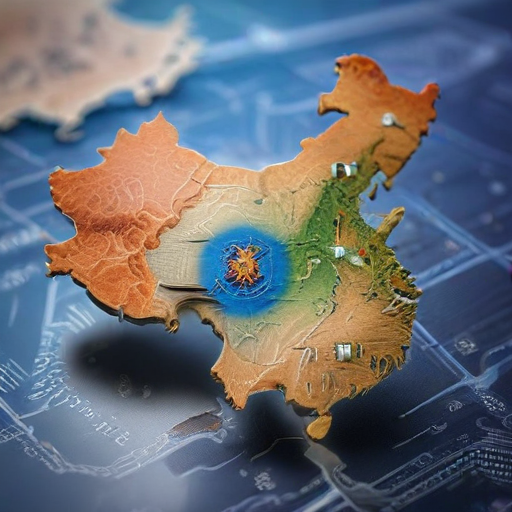As the United States deliberates on implementing stricter trade restrictions aimed at preventing advanced chip technology from reaching China, Nvidia, a leading chipmaker based in the U.S., is reportedly developing a modified version of its new artificial intelligence chips to adhere to these regulations.
According to a report from Reuters, Nvidia is actively working on a variant of its Blackwell AI chips for the Chinese market. The company plans to team up with local distribution partner Inspur to introduce this new chip, tentatively titled the “B20,” which is anticipated to begin shipping in the second quarter of 2025. Nvidia has not provided any official comments regarding this development.
Nvidia has already released several chips specifically designed to align with existing U.S. export controls, including the H20 model. The company previously adjusted prices on the H20 to enhance its competitiveness against domestically produced alternatives from Huawei. Notably, H20 sales are reportedly on the rise, with estimates indicating that Nvidia could sell over one million of these chips in China this year, potentially generating around $12 billion despite ongoing trade restrictions. This projection nearly doubles Huawei’s anticipated sales for its Ascend 910B chip.
However, experts from Jefferies have warned that Nvidia’s H20 chips may face additional risks under forthcoming U.S. trade regulations. As the U.S. prepares for its annual review of semiconductor export controls scheduled for October, analysts suggest a strong likelihood that the H20 could be banned from sale to China. This ban might manifest in various ways, including product-specific restrictions or adjustments to computing power and memory capacity limits.
Furthermore, there is speculation that the U.S. could broaden export controls to encompass chips sold to other Southeast Asian nations like Malaysia, Indonesia, and Thailand, or even extend these restrictions to overseas Chinese companies, although the latter would pose implementation challenges.
This dynamic situation highlights the intricate balance that tech companies like Nvidia must navigate within global trade and regulatory environments. While challenges remain, the ongoing developments reflect the resilience of the semiconductor industry in adapting to regulatory pressures and tapping into emerging markets. As Nvidia pursues innovation and compliance, the potential for future growth in international markets remains promising.
